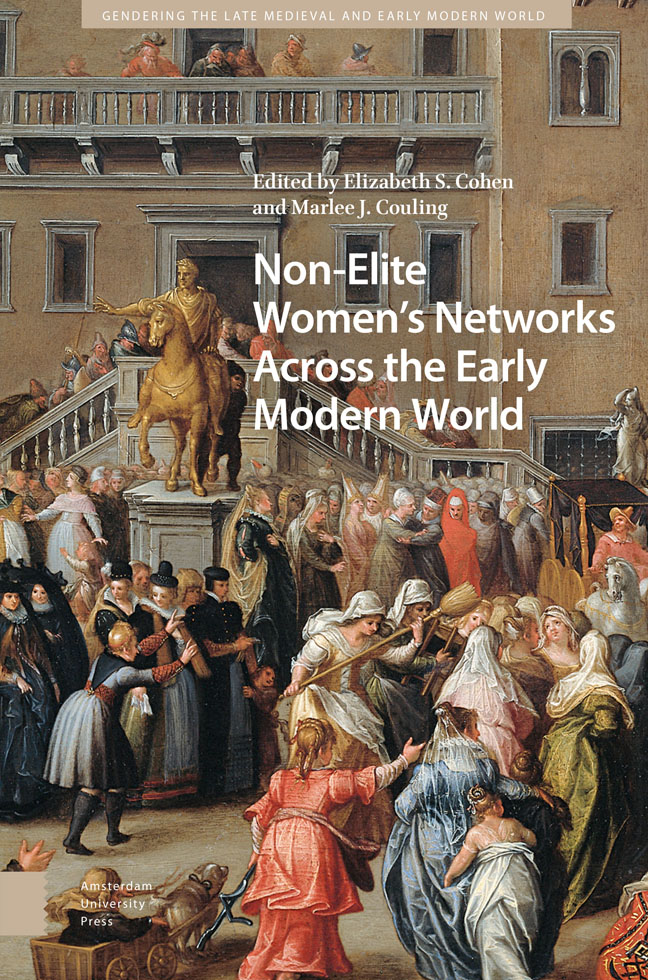Introduction
Published online by Cambridge University Press: 20 February 2024
Summary
Abstract: Non-elite or marginalized women, among them the poor, migrants, members of religious minorities, abused or abandoned wives, and sex workers, have left few records of their experiences. Nevertheless, drawing on varied primary sources, ten essays here reconstruct ways that these doubly invisible early modern women built and used networks and informal alliances to supplement the usual structures of family and community that often let them down. Flexible, ad hoc relationships could provide practical and emotional support for women who faced problems of livelihood, reputation, displacement, and spousal violence. Following other historians, we adapt the concept of networks to bring attention to the social dynamics, agency, and solidarity of these women. The essays range in geography from the eastern Mediterranean to colonial Spanish America and in time from the sixteenth to the eighteenth centuries.
Keywords: early modern, non-elite, networks, agency, emotions, women helping women
This collection of essays undertakes to show how women in non-elite or marginalized positions, a doubly invisible but numerous component of the early modern population, built and used a variety of networks to solve problems, to fend for themselves and their associates, and to build solidarities with other women. Our chronology stretches from the sixteenth through the eighteenth centuries. While we cannot claim to explore the entire globe, we have gathered case studies sited in a broad reach of lands extending from the eastern Mediterranean across Europe and the Maghreb and on to colonial Spanish America. The collection's geography includes Turkey, Egypt, Algeria, Italy, England, Spain, Mexico, and Guatemala. We meet most of our women in urban settings, cities and towns of varying size that often belonged to imperial domains and brought together a cosmopolitan population. Around the Mediterranean, Cairo, Istanbul, Rome, and Venice included ethnic and religious minorities, and in the Americas, Mexico City, and Santiago de Guatemala gathered peoples of varied Indigenous, Black, and European descent. In these early modern cities, many residents were people on the move, and the business of making a new life required networking not only among familiar kinfolk and neighbors but also with strangers. Our protagonists include travelers and migrants: one party from England visited the Ottoman Empire; two small groups migrated from the Levant to Italy; a fictional prostitute from Cordoba went to Rome; and one poor woman, in colonial Guatemala, left the countryside for the city.
- Type
- Chapter
- Information
- Publisher: Amsterdam University PressPrint publication year: 2023



